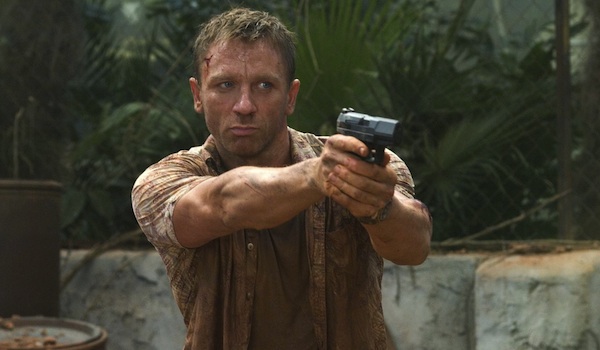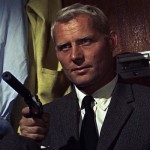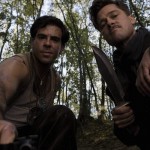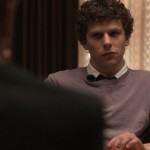Casino Royale Review
I’ve written around these parts before that I’m a big James Bond fan. I grew up watching the movies, and they turned out to be like a gateway drug for me—after watching them so many times, I began to experiment with other types of movies until I became a full-on film addict. But Bond films definitely hold a special place in my heart.
That being said, I remember being really pissed off that for the 21st film in the series, the producers were going back to the well for an origin story. It signaled to me that they had nowhere to go. I understood the need to shake up the series after the dreadful Die Another Day, but I hoped they had enough creativity and faith in the series that they didn’t need to start over.
Luckily, Martin Campbell’s Casino Royale turned out to be a reboot on par with Batman Begins. It actually shows us where James Bond came from and why he acts the way he does. At the same time, it gives us a first-rate action thriller that’s smart, compelling, and energetic. But perhaps the most successful—and surprising—element is the genuinely touching love story at this film’s core. It works on so many different levels and ends up being 007’s best and most enjoyable adventure.
Excepting the film’s prologue, during which we see Bond (Daniel Craig) make the two kills required for him to become a double-0 agent, Casino Royale takes place in three distinct acts. The first of which is mostly action-packed setup. In Madagascar, Bond tracks a bombmaker through a construction site (the film’s best scene and probably the best action scene of any Bond film) and kills him at his embassy, violating one of the strictest rules of international relations. His superior, M (Judi Dench), is furious, but lets him pursue his leads, which takes him to the Bahamas, Miami, and eventually, Montenegro for a poker tournament at the famous Casino Royale, which comprises most of the second act.
Running the tournament is Le Chiffre (Mads Mikkelsen), financier to terrorists around the world who just lost over $100 million because of Bond’s meddling in Miami. He’s trying to win back the money he lost, but Bond gets involved because if he can beat Le Chiffre, he won’t have any choice but to seek asylum in the arms of Her Majesty’s government. Helping Bond are Vesper Lynd (Eva Green) of the British Treasury, and Mathis (Giancarlo Giannini), a fellow agent stationed in Montenegro.
The less said about the third act, the better. Suffice it to say, Campbell (who recently directed the significantly inferior thriller Edge of Darkness with Mel Gibson) does some very unexpected things for a Bond film. But it’s important to remember: This is an origin story. The character we are used to hasn’t been fully formed yet. This mentality didn’t really hurt Casino Royale, but it certainly impacted people’s opinions of its sequel, Quantum of Solace. People were expecting to see Bond, James Bond, but they were stuck with a hollow shell of a man who hasn’t recovered from what happened to him the third act of this film. But I digress…
Perhaps the most controversial decision when it came to making Casino Royale was casting Daniel Craig in the iconic role of 007. Why was it so controversial? He’s a blond! How dare they cast a blond as James Bond! But when the film finally hit, the haters shut up—and quick. Craig is outstanding, putting his own stamp on the series after just one film. He’s brooding, but still charismatic enough that this feels like James Bond. He’s a ladies’ man for sure, but he’s not much of a gentleman, not even superficially. He takes more hits than ever before (and goes through some particularly brutal torture), but he’s even more vulnerable emotionally, for Bond actually falls in love here. It’s on the second time in the series that this happens (the first being the tragic On Her Majesty’s Secret Service), and the way Craig handles the complex emotions of this romance is nothing short of brilliant.
On par with Craig is Eva Green, who has never been better. Vesper is one of the best Bond girls ever because she feels like a true equal. Witness the scene in which they meet. They trade jabs like few on-screen couples have before. Many of 007’s dames end up being submissive bimbos, but Vesper is her own woman.
Missing are many of the Bond films’ trademarks—Q and his gadgets, Moneypenny, etc—but they are all irrelevant for this story. It’s actually better that they aren’t present; this is a darker turn than we are accustomed to from 007, and silly gadgets would be out of place. This is a spy film more in the style of The Bourne Identity than some of Bond’s sillier entries, like Pierce Brosnan’s swan song Die Another Day.
Whatever the case, this is without a doubt one of the best action films of the past decade and definitely the best of James Bond’s 22 films. It’s just incredibly well-made and exciting. Gone are the elements that have held even the best Bond films (like From Russia with Love) back in the past. James Bond returned after this, to mixed results, and his future remains in limbo for now (until MGM resolves its financial woes), but at least we have Casino Royale, which will likely forever be this series’ pinnacle.















